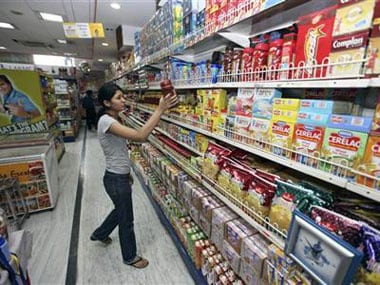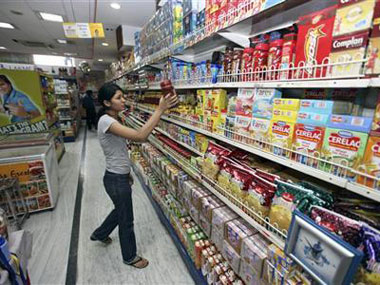Companies have neither a body to be kicked nor soul to be damned is an old hat. Yet Central Board of Excise and Customs (CBEC) Chairperson Vanaja Sarna has written letters to Fast Moving Consumer Goods (FMCG) majors asking them to forthwith revise the Maximum Retail Price (MRP) downwards in tune with the Goods and Services Tax (GST) rate reduction taking effect from November 15, 2017. Sarna and the government believe that they are reading the riot act to the FMCG companies, restaurants and others whose products have been the beneficiaries of the recent GST rate reduction. Would it result in a feverish logistical activity across the nation for restamping of MRP in select locations? Maggi, the two minute noodles of Nestle, was recalled at great pain and expense to comply with the court order on reports of high toxic content. Would FMCG companies do an encore this time round not to comply with court order but an official diktat of suspect sustainability? For all one knows, some of them might just be seen as good corporate citizens though not for being on the right side of the law. Others might sternly tell their distributors, stockists and retailers to stick up revised MRP on the packaging. The first one would be disruptive and hugely expensive while the second option might see retailers especially thumbing their noses in contemptuous disdain. There is no way the long arm of the law can reach out to millions of them dotting the landscape. Nor would consumers complain against such fleeting fleecing given their apathy and the very small stakes. The government assumes that input tax credit, the hallmark of GST, should result in reduction in cost of production which in all fairness must be passed onto the customers. Fairness indeed is the concern that underpins the doctrine of unjust enrichment—a manufacturer in all conscience and fairness should not pocket the reduction in tax burden but pass it on to the customers. Indirect taxes are capable of being passed on down the line resulting in the ultimate consumer bearing the brunt. Therefore, any reduction in them ought to be passed onto the ultimate consumer. Fair enough. [caption id=“attachment_3867593” align=“alignleft” width=“380”]  Representational image. Reuters[/caption] But experience shows law and official edicts don’t work. In 1991, both central excise and customs acts were amended to prevent undue enrichment—no refund on tax reduction due to wrong classification or valuation unless the one in the supply chain proves that he was the one who bore the brunt; else the refund would be given to the consumer who produces the bill. Anticipating all-round consumer apathy, the law also provided for transfer of the refund due to ‘consumer welfare fund’. Refunds have come to a trickle ever since in the sobering realization that it is not wise to fight a legal case at great expense only to see the money going to ‘consumer welfare fund’. Many experts aver that the law against undue enrichment of manufacturers was unwittingly replaced by undue enrichment of the government. The GST situation is slightly different in that one is not talking about refunds but about MRP reduction. But both are characterized and marked by woolly notions. Indirect taxes are invariably passed onto customers as it is evident by the GST invoice format itself. How the manufacturers arrive at their selling price is their business except in industries where there is a price control order. Restaurants and FMCG are not under any price control order. The input costs indeed might have come down in the wake of GST credit but there is no back to back relationship between MRP and input costs. Competition of course can be counted upon to tame the market. And an oligopoly or monopolist can be counted upon to be tamed by the Competition Commission. But officials bore the brunt; else the refund would be given to the consumer who produces the bill. Anticipating all-round consumer apathy, the law also provided for transfer of the refund due to ‘consumer welfare fund’. Refunds have come to a trickle ever since in the sobering realization that it is not wise to fight a legal case at great expense only to see the money going to ‘consumer welfare fund’. Many experts aver that the law against undue enrichment of manufacturers was unwittingly replaced by undue enrichment of the government. Be that as it may. The GST situation is slightly different in that one is not talking about refunds but about MRP reduction. But both are characterized and hence marked by woolly notions. Indirect taxes are invariably passed onto customers as evident by the GST invoice format itself. How the manufacturers arrive at their selling price is their business except in industries where there is price control order. Restaurants and FMCG are not under any price control order. The input costs indeed might have come down in the wake of GST credit but there is no back to back relationship between MRP and input costs. Competition of course can be counted upon to tame the market. And an oligopoly or monopolist can be counted upon to be tamed by the Competition Commission. But official diktat or letters have just moral persuasive effect. The ubiquitous masala dosa priced at Rs 100 was billed Rs 112 and Rs 118 respectively depending upon the restaurant was AC or non-AC. From 15 November, 2017 they ought to be billed Rs 105 given the uniform and secular GST rate of 5 percent on restaurants. However, if a given restaurant reworks its menu price so as to bill the same Rs 112 or Rs 118 respectively, competition alone can come to consumer’s rescue and not the anti-profiteering authority
The government perhaps believe that it reading the riot act to the FMCG companies, restaurants and others whose products have been the beneficiaries of the recent GST rate reduction
Advertisement
End of Article


)




